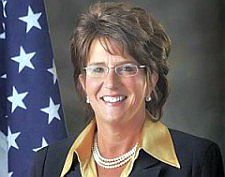 U.S. Reps. Jackie Walorski (R-Ind.) and Earl Blumenauer (D-Ore.) and U.S. Sens. Tom Carper (D-Del.), Pat Toomey (R-Pa.), Bob Menendez (D-N.J.), and Bill Cassidy (R-La.) have introduced bipartisan, bicameral legislation to speed up the modernization of Programs of All-Inclusive Care for the Elderly (PACE), which allow seniors with complex care needs to continue living at home.
U.S. Reps. Jackie Walorski (R-Ind.) and Earl Blumenauer (D-Ore.) and U.S. Sens. Tom Carper (D-Del.), Pat Toomey (R-Pa.), Bob Menendez (D-N.J.), and Bill Cassidy (R-La.) have introduced bipartisan, bicameral legislation to speed up the modernization of Programs of All-Inclusive Care for the Elderly (PACE), which allow seniors with complex care needs to continue living at home.
“Seniors facing health challenges should have the option to receive high-quality, comprehensive health care while continuing to live at home, and the PACE program helps them do that,” Congresswoman Walorski said. “PACE organizations across the country, including St. Joseph PACE in Mishawaka, have proven this integrated care program is effective in improving health outcomes and quality of life. The PACE program is long overdue for an update, and this bipartisan, commonsense legislation will ensure improvements are made quickly so more seniors can live at home longer.”
“The PACE program has proven to be extremely beneficial to the elderly and individuals living with disabilities in my community and in communities across the country,” said Congressman Blumenauer. “The administration has a responsibility to modernize the program and make it available to more Americans. This legislation will force this modernization and go a long way in achieving our goals of better care at lower costs for those in need.”
“We have a responsibility to care for the most vulnerable among us, and PACE organizations around the country help us to do just that by providing comprehensive and high-quality care to both seniors and those living with disabilities,” said Senator Carper. “This bipartisan legislation will help to ensure that PACE remains an integral component of care for American senior citizens, and I urge both the House and Senate to take it up and pass it quickly.”
“Pennsylvania’s PACE programs help thousands of seniors who need an institutional-level of treatment remain in their homes while still receiving quality medical care,” said Senator Toomey. “As enrollment in PACE continues to grow, the program’s regulations must be flexible enough for providers to introduce new medical technologies that allow for better coordinated care. I hope the Finance Committee will soon take up our bipartisan legislation.
“We appreciate strong leaders in Congress supporting our efforts to expand the number of individuals who can benefit from the PACE model of care and the sites needed to serve them,”said Shawn Bloom, president and CEO of the National PACE Association (NPA). “The flexibility to be provided in the new PACE Final Rule are practices that have been developed and field tested over 20 years during which PACE providers have been serving many different types of people, families and communities.”
“We appreciate Rep. Walorski’s support of PACE,” said Stacey Newton, the executive director of Saint Joseph PACE in Mishawaka, Ind. “The new PACE Final Rule will allow us to expand PACE more quickly to improve the lives of individuals whose health care needs make them eligible for nursing home care. By serving them in the community, PACE is able to dramatically impact their quality of life and the quality of life for their families.”
BACKGROUND
H.R. 6561 / S. 3338 would require the Centers for Medicare and Medicaid (CMS) to finalize updated regulations for PACE programs by the end of the year. PACE is a proven model for delivering high-quality, comprehensive, integrated, and coordinated community-based health care to seniors and individuals with disabilities who meet the criteria for nursing home care but wish to live at home. Currently, 124 PACE organizations across 31 states serve more than 45,000 people. St. Joseph Health System operates a PACE organization serving Hoosiers at a center in Mishawaka.
In November 2017 and June 2018, a bipartisan group of members of Congress sent letters urging CMS Administrator Seema Verma to prioritize updating the existing regulatory framework, which is more than a decade old. An updated rule was proposed nearly two years ago but has not been finalized.
The members called for changes to improve efficiency and increase flexibility, including:
- Allowing PACE organizations to include community physicians as part of their hallmark interdisciplinary teams (IDT);
- Decreasing the burden of expansion by allowing existing PACE organizations to open new PACE centers without an application;
- Providing services in alternative settings, other than the PACE Center, to better respond to beneficiaries’ needs and preferences; and
- Configuring the IDT to meet the needs of individual participants.
Walorski represents the 2nd Congressional District of Indiana, serving as a member of the House Ways and Means Committee.











